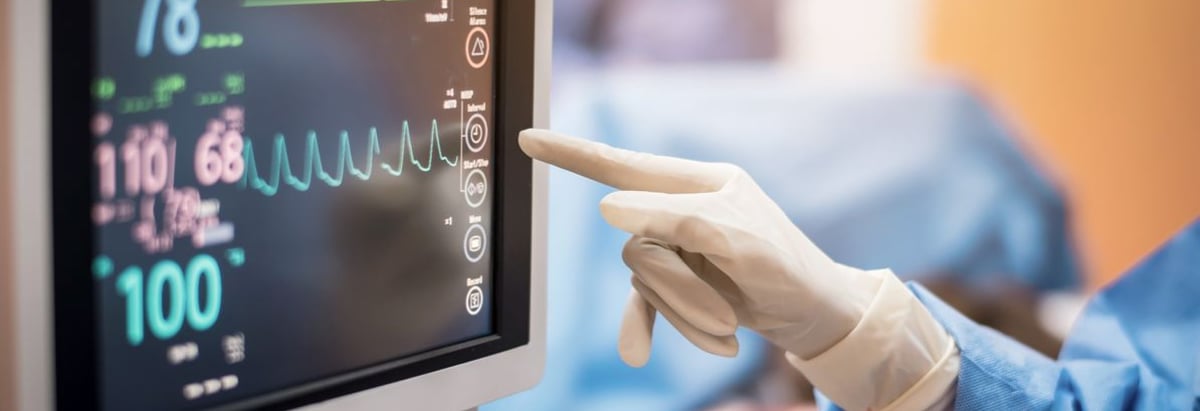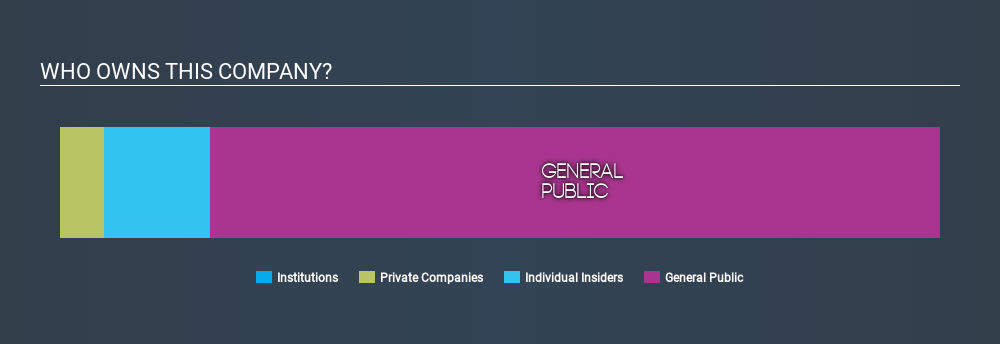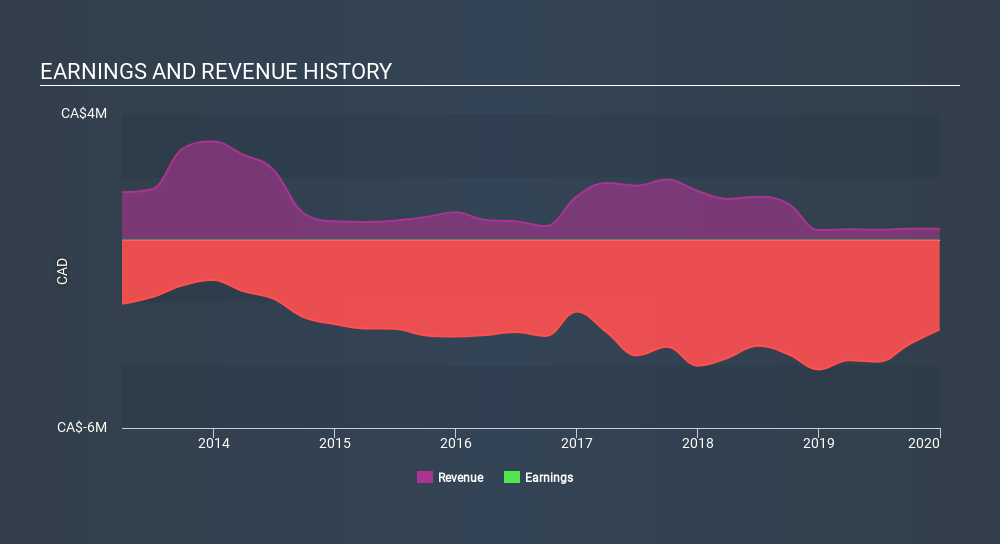
If you want to know who really controls DIAGNOS Inc. (CVE:ADK), then you'll have to look at the makeup of its share registry. Institutions will often hold stock in bigger companies, and we expect to see insiders owning a noticeable percentage of the smaller ones. I quite like to see at least a little bit of insider ownership. As Charlie Munger said 'Show me the incentive and I will show you the outcome.
DIAGNOS is not a large company by global standards. It has a market capitalization of CA$14m, which means it wouldn't have the attention of many institutional investors. Taking a look at our data on the ownership groups (below), it's seems that institutions don't own shares in the company. We can zoom in on the different ownership groups, to learn more about DIAGNOS.
See our latest analysis for DIAGNOS

What Does The Lack Of Institutional Ownership Tell Us About DIAGNOS?
Institutional investors often avoid companies that are too small, too illiquid or too risky for their tastes. But it's unusual to see larger companies without any institutional investors.
There are many reasons why a company might not have any institutions on the share registry. It may be hard for institutions to buy large amounts of shares, if liquidity (the amount of shares traded each day) is low. If the company has not needed to raise capital, institutions might lack the opportunity to build a position. On the other hand, it's always possible that professional investors are avoiding a company because they don't think it's the best place for their money. DIAGNOS might not have the sort of past performance institutions are looking for, or perhaps they simply have not studied the business closely.

DIAGNOS is not owned by hedge funds. Tristram Coffin is currently the largest shareholder, with 8.1% of shares outstanding. With 5.1% and 1.9% of the shares outstanding respectively, Maurice Pinsonnault Management Inc. and Georges Hébert are the second and third largest shareholders. Georges Hébert also happens to hold the title of Member of the Board of Directors.
On studying our ownership data, we found that 5 of the top shareholders collectively own less than 50% of the share register, implying that no single individual has a majority interest.
While it makes sense to study institutional ownership data for a company, it also makes sense to study analyst sentiments to know which way the wind is blowing. As far I can tell there isn't analyst coverage of the company, so it is probably flying under the radar.
Insider Ownership Of DIAGNOS
The definition of company insiders can be subjective, and does vary between jurisdictions. Our data reflects individual insiders, capturing board members at the very least. Company management run the business, but the CEO will answer to the board, even if he or she is a member of it.
Most consider insider ownership a positive because it can indicate the board is well aligned with other shareholders. However, on some occasions too much power is concentrated within this group.
Our most recent data indicates that insiders own a reasonable proportion of DIAGNOS Inc.. Insiders have a CA$1.7m stake in this CA$14m business. I would say this shows alignment with shareholders, but it is worth noting that the company is still quite small; some insiders may have founded the business. You can click here to see if those insiders have been buying or selling.
General Public Ownership
The general public, mostly retail investors, hold a substantial 83% stake in ADK, suggesting it is a fairly popular stock. With this size of ownership, retail investors can collectively play a role in decisions that affect shareholder returns, such as dividend policies and the appointment of directors. They can also exercise the power to decline an acquisition or merger that may not improve profitability.
Private Company Ownership
We can see that Private Companies own 5.1%, of the shares on issue. It's hard to draw any conclusions from this fact alone, so its worth looking into who owns those private companies. Sometimes insiders or other related parties have an interest in shares in a public company through a separate private company.
Next Steps:
It's always worth thinking about the different groups who own shares in a company. But to understand DIAGNOS better, we need to consider many other factors. Case in point: We've spotted 7 warning signs for DIAGNOS you should be aware of, and 4 of them can't be ignored.
Of course, you might find a fantastic investment by looking elsewhere. So take a peek at this free list of interesting companies.
NB: Figures in this article are calculated using data from the last twelve months, which refer to the 12-month period ending on the last date of the month the financial statement is dated. This may not be consistent with full year annual report figures.
If you spot an error that warrants correction, please contact the editor at editorial-team@simplywallst.com. This article by Simply Wall St is general in nature. It does not constitute a recommendation to buy or sell any stock, and does not take account of your objectives, or your financial situation. Simply Wall St has no position in the stocks mentioned.
We aim to bring you long-term focused research analysis driven by fundamental data. Note that our analysis may not factor in the latest price-sensitive company announcements or qualitative material. Thank you for reading.
About TSXV:ADK
DIAGNOS
Provides software-based services for healthcare sector in Canada, the United States, Mexico, Chile, and internationally.
Moderate with mediocre balance sheet.
Market Insights
Community Narratives



